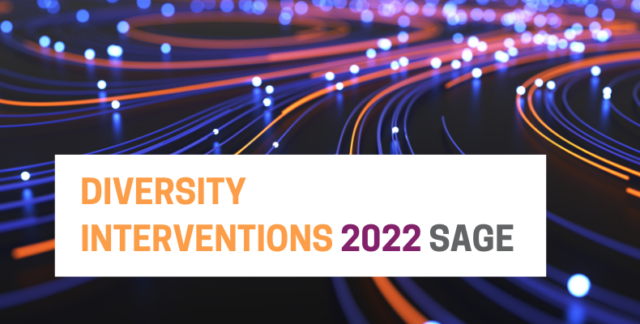About the Dún Laoghaire Institute of Art, Design and Technology
We are the only institute of art, design, and technology in Ireland that focuses specifically on the creative, cultural and technological industries. Our mission is to develop excellent graduates who are highly valued, who live and work as true global citizens, actively contributing to the development of their industries and wider society.
With approximately 2500 registered students at undergraduate and postgraduate levels, the Institute is one of the smallest and most specialist higher education institutions in the country.
The Institute has two faculties: the Faculty of Film, Art and Creative Technologies (FFACT) and the Faculty of Enterprise and Humanities. The former has three academic departments, while the latter has two. Around 70% of the Institute’s undergraduates are completing a degree in a FFACT department.
How we teach respect and inclusion through the FFACT Connect Module
The FFACT Connect Module has been mandatory for first-year students since the 2020/21 academic year. It is run online via Microsoft Teams and the Virtual Learning Environment.
The module is built into all FFACT degrees: Applied Psychology, Animation, Art, Creative Computing, Creative Music Production, Design for Film, Film Production, Graphic Design, Photography and Visual Media, and TV Production. The module is coordinated by an academic staff member in the Faculty.
Running in Term 1, the module assists new students in their transition to higher education and create a space for interdisciplinary learning and collaboration across academic departments. Sessions are run weekly for three hours.
Apart from the sexual consent workshops (due to the nature of the discussions), the workshops are recorded and made available to students on the Virtual Learning Environment. We note class attendance and viewership of the recordings.
The module includes sessions about using the Institute’s library services, academic and study skills, and academic integrity. The college counsellor also gives a talk on ‘minding your mental health at college’.
As an Athena Swan Bronze Award institution, a key priority for the Institute is to incorporate equality, diversity and inclusion (EDI) into its curricula, pedagogy and assessment.
To support this action item, the EDI and Student Experience teams facilitate four workshops on EDI issues. EDI sessions are led by internal and external facilitators. Topics may vary from year to year; for example, a new session was added to this year’s programme on Traveller Culture Awareness. The Travelling Community is an Irish ethnic minority group. Travellers continue to face high levels of discrimination and racism. The session was designed to raise the students’ awareness and understanding of the everyday experiences of Travellers.
In 2022/23, the following topics were covered:
- Anti-racism and race awareness
- Athena Swan at the Institute
- Dignity and respect
- Disability awareness
- Gender equality
- The Institute’s policies and procedures on EDI and dignity and respect
- Intersectionality
- Irish equality legislation
- Neurodiversity awareness
- Queer theory
- Sexual consent classes
- Trans and non-binary awareness
- Traveller culture awareness
- Understanding and using pronouns
Additional EDI resources, including the Institute’s EDI Policy and Mutual Respect Policy, are made available for students on the Virtual Learning Environment.
FFACT Connect is a credited pass/fail module. For their assessment, student groups submit a ‘digital artefact’ that represents their views on FFACT and reflects on key learnings from the course. The nature of the artefact is not prescribed and students are encouraged to think widely and creatively. Past submissions have included word documents, posters, cartoons, animations, memes, drawings, edited videos and slideshows.
Impact achieved
To assess the impact of the EDI sessions, students who took the module in 2021/22 were asked to complete a post-module survey. The survey received 59 responses (a 23% response rate).
The results, presented in Tables 1 and 2 below, show that FFACT students positively engaged with the module and took important learnings from it.
Participants were especially positive about the anti-racism training. This session was run by an external expert.
Table 1: Post-module survey feedback from first-year FFACT students on the anti-racism workshop.
| Agree | Neither agree nor disagree | Disagree | Did not attend | |
| I enjoyed the anti-racism workshop | 44 (75%) | 10 (17%) | 1 (2%) | 4 (7%) |
| I learned something new from this workshop | 45 (77%) | 3 (5%) | 6 (10%) | 4 (7%) |
| I found the design and delivery of this workshop engaging | 35 (60%) | 14 (24%) | 5 (9%) | 4 (7%) |
| I would attend another workshop run by the facilitator | 45 (77%) | 10 (17%) | 1 (2%) | 3 (5%) |
| I would recommend this programme to my peers | 45 (77%) | 10 (17%) | 1 (2%) | 3 (5%) |
| I have a better understanding of the different dimensions of racism after taking this workshop | 47 (80%) | 4 (7%) | 4 (7%) | 4 (7%) |
| I have a better understanding of racism in the Irish context after taking this workshop | 45 (77%) | 6 (10%) | 4 (7%) | 4 (7%) |
| I feel more confident to challenge racist behaviour after taking this workshop | 33 (56%) | 16 (27%) | 6 (10%) | 4 (7%) |
| I have a better understanding of what it means to be anti-racist after taking this workshop | 43 (73%) | 10 (17%) | 2 (3%) | 4 (7%) |
Table 2: Post-module survey feedback from first-year FFACT students on other EDI sessions.
| Following completion of this module… | Agree | Neither agree nor disagree | Disagree | Did not attend |
| I am more knowledgeable about equality issues in Irish law | 35 (59%) | 9 (15%) | 6 (10%) | 9 (15%) |
| I am more knowledgeable about equality issues in the creative and cultural industries in Ireland | 33 (56%) | 12 (20%) | 5 (9%) | 9 (15%) |
| I can see the value of integrating EDI topics into my academic work | 39 (66%) | 9 (15%) | 2 (3%) | 9 (15%) |
| I feel more knowledgeable about the Institute’s EDI policies, procedures and supports | 43 (73%) | 6 (10%) | 1 (2%) | 9 (15%) |
| I feel more knowledgeable on how to report an incident to the college | 39 (66%) | 8 (14%) | 3 (5%) | 9 (15%) |
| I feel safer telling people my pronouns | 34 (56%) | 14 (24%) | 1 (2%) | 10 (17%) |
| I feel more comfortable asking other people for their pronouns | 30 (51%) | 16 (27%) | 4 (7%) | 9 (15%) |
| I feel more knowledgeable about the Institute’s work to advance gender equality | 39 (66%) | 7 (12%) | 3 (5%) | 10 (17%) |
The Institute is actively working to create a safe and respectful environment for its student body. A key initiative in this area is the roll-out of sexual consent workshops for all first-year students.
These sessions have been added to core academic timetable to maximise participation; in the case of FFACT, this is done through the FFACT Connect module.
The majority of students surveyed in 2021/22 had positive feedback on the sexual consent workshop and also expressed their interest in further developing their knowledge in this space (see Tables 3 and 4). Almost all respondents (95%) agreed that consent education should be made available to Institute staff.
Table 3: Post-module survey feedback from first-year FFACT students on the Consent Plus workshop.
| Agree | Neither agree nor disagree | Disagree | Did not attend | |
| This workshop was well situated to my level of understanding of consent | 47 (80%) | 5 (9%) | 2 (3%) | 5 (9%) |
| Consent education should be made available to all students | 54 (95%) | 2 (4%) | 1 (2%) | N/A |
| Consent education should be made available to all staff | 54 (95%) | 1 (2%) | 2 (4%) | N/A |
Table 4: First-year FFACT students’ interest in learning more about consent, bystander intervention and responding to sexual violence and harassment.
| Yes | No | Did not attend | |
| Do you feel your knowledge/skills were improved during [the Consent Plus] workshop? | 43 (73%) | 10 (17%) | 6 (10%) |
| Would you attend further training on consent outside of class time? | 24 (41%) | 35 (59%) | N/A |
| Would you be interested in receiving training on bystander intervention? | 48 (81%) | 11 (19%) | N/A |
| Would you be interested in receiving training on how to respond to disclosures of sexual violence and harassment? | 48 (81%) | 11 (19%) | N/A |
Identified areas for development
- Consult with students on other equality issues they want included in the module. For example, in previous years, students have requested that a greater focus be placed on age as an equality issue.
- Develop asynchronous online workshops on EDI to allow students to build on their learnings outside of class time. Ask students to reflect on this material in class time.
- Expand the content of sexual consent workshops to include guidance on bystander intervention and receiving disclosures of sexual violence and harassment.
- Provide in-depth case studies of EDI policies and practices in the creative and cultural sector in Ireland and globally, e.g. film, TV, animation, design, theatre, music, etc. This is where most FFACT graduates will go when they enter the workforce.
- More regular assessment of the impact of the EDI workshops (and other topics) on students through student surveys, focus groups, etc.
- The inclusion of sustainability/Sustainable Development Goals in the curriculum and how this relates to the creative and cultural sector.
- Work to provide EDI education to all first-year students in the Faculty of Enterprise and Humanities. At present, students in this faculty only take the sexual consent workshops as these are mandatory across the Irish higher education sector.


